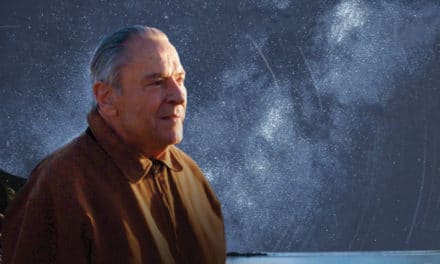
Photo by Galen Oakes Photography 2012©
The act of making music, just as the act of taking mind-altering substances, is as ancient as humanity itself. The voice, the drum, the instrument, and the synthesizer have all been essential tools for the expression of human creativity and conveying of emotion across the ages. Nearly every tradition of psychedelic use around the globe has some form of music integrated with it, but even standing on its own, music is without a doubt a powerful tool for altering consciousness and generating peak experiences. This fundamental power behind music that compels us to create it and leads us into profound emotional responses is a great mystery that we will surely continue to explore for all time.
Today, electronic music is one of the most exciting and rapidly evolving genres of sound exploration. Random Rab is a veteran electronic music producer who has spent decades refining his craft and sharing his sonic gifts at festivals and performances around the globe. While it is notoriously difficult to classify any electronic musician, his creations could be described as ‘chill psychedelic bass music’ that is deeply layered with intention. His newest album Formless Edge marks his 11th full-length release and takes listeners on a warm kaleidoscopic journey filled with soothing beats, heartfelt vocals, and delightful nuances. We spoke with Rab recently about music, psychedelics, emotion, and the mysterious force that unites them.
(We invite readers to stream Rab’s music here to accompany the following interview)
Thanks so much for speaking with us, Rab. Your music has been described as psychedelic bass music. What does that term mean to you?
It’s kind of an interesting question because I’m curious as to why the term “psychedelic” has been applied to our kind of electronic music. Back in the day, psychedelic music was things like Pink Floyd, and there were different psychedelic music scenes around the world- like in France, the sexedelic movement which had a more playful, circusy sound. For some reason, in our scene currently we are described as psychedelic bass music. I think it has to do with the technology that’s available and tapping into a deeper part of our psyche with the assistance of technology.
I don’t really know what it is about these frequencies that seems to enhance the so-called psychedelic experience, but it does do something. When I’m making the music, I’m not thinking of it as being “a psychedelic song”- it’s more that I’m just making the kind of music that gets me excited, stimulates me and makes me feel good. For some reason it happens to be seen as psychedelic, and it’s sort of a mystery. In the bass music scene we have the power to explore these frequencies in a way that was never possible before. Before synthesizers, pretty much all of the bass sounds were coming from a bass guitar or stand-up bass and there was a limited amount of bass frequencies that one could explore. I think with the new so-called bass music scene, it’s really about having the power to work with every frequency, and it happens to be a lot of bass because it just feels good. It feels mysterious… I don’t know what is happening or why we feel these things.
This reminds me of a conversation I had a while back with Dennis McKenna where we were talking about how technology is fundamentally just an extension of nature. Normally we see them as disparate things, or even opposed to each other, but really there’s nothing in our technology that is unnatural. Everything comes from the natural world.
When I’m working on a track, ultimately what’s happening is that I’m pushing information through a speaker cone that is vibrating the air around us. I don’t think we really have any comprehension of what’s happening inside our minds and souls and why it affects us. I can see on my computer that if I move this thing around it’s going to make a sound that sounds like this, and I can control that, but beyond that what’s happening is a mysterious force of nature. We’re basically working with the forces of nature through this technology to deepen our understanding of ourselves. The technology is simply a tool to vibrate air, and that’s it.
I’ve never thought of it that way; that’s a profound understanding. It’s interesting how vibrating the air around us can have such an immediate effect on our emotions.
Yea, I imagine it as an imaginary board with all these different knobs, and each one controls a different nuanced emotion within the human body, but when you turn one knob it affects the other knobs. So really when working on music as a craft, you’re just learning how to adjust these knobs in such a way to have a little more of this emotion, a little less of that- it’s an emotional tuning board. There’s this direct relationship between music and emotion and that’s really what it’s all about. You’re right; it’s very immediate. Just like laughter, it affects us and we can’t help it!
So many people use music therapeutically in one way or another. In some ways it’s the most common self-medication practice that we all do. When you tune those knobs the right way, people find it medicinal.
I totally agree. Music exists in time as a 4th dimensional medium. You can’t really pause it and analyze it; it has to be experienced by the constant movement through time. Because of that, I think it’s a great tool for bringing us into the present moment. Sometimes that is therapeutic in itself, to ask “What am I experiencing now, how can I enhance my feeling of the present moment?” Music is an excellent tool to bring us into that moment. If you’re having a good time and want to have an even better time, you just put on music and there you are. It just enhances the experience of Now.
How have psychedelics directly or indirectly influenced your music?
It’s hugely influenced my music on multiple levels and at different times in my life. There’s that famous quote about the finger being for pointing out the moon, but once the moon is seen, the finger is no longer needed. In some ways, that’s my relationship with psychedelics. They’ve been pivotal to me and my growth as an artist, but they’re not something that I’m dependent on currently. I don’t necessarily need psychedelics to do anything, but they were very important to create that initial spark of understanding about the oneness of all things and the way that vibration is what connects everything around us.
One of the most important things that it has brought to me is looking at the boundary between what is music and what isn’t music- this very blurry grey line. Music never stops. Thats where the album title Formless Edge comes from: it’s about recognizing how the edge is essentially formless. If you take a decibel meter even to the quietest room in the quietest part of the world, you’re still going to pick up 30-35 decibels of vibration. There is always vibration happening around us. When we create music, we’re really just amplifying different harmonic frequencies that are already there. So we are not really creating something from nothing, we’re just amplifying the vibrations all around us. Psychedelics have helped me to understand that interconnectedness between the symphony of the universe and the simple songs that we create as humans.
Beautiful. And do you see that the experience of listening to a song or watching someone perform a set can in some ways be similar to a psychedelic experience, in that it leads you to that sense of wonder and oneness?
Absolutely, and I think that it is completely without a doubt possible to have the most profound psychedelic experience without the assistance of any kind of chemicals. I think that the substances or plants that people use are a shortcut that pushes you over that way and takes you on that journey. With music alone, it needs to be a little more participatory- it needs to be the right moment, the right environment, you need to be in the right space and of course it needs to be the right song. But if all those things align, music is the most powerful psychedelic. And I think as a music producer, even more so, because you’re crafting something your brain needs to get into that space, so you’re able to create a piece of music that will get you there. If you’re just a listener, you have to dig around on iTunes and Spotify and go to the record store for music you like, and maybe you’ll find the track that’s right for you, or maybe not. That’s one of the reasons I’m so interested in making music, because I just really love it and it’s hard for me to find the songs that fit every moment of my life, so I need to create them. It’s a way for me to access to my own brain and it’s amazing how little I need psychedelics anymore to get to that place. It’s all right there through music.
We are very grateful to Random Rab for taking the time to speak with us. You can follow him on Soundcloud, Facebook and Twitter and find his new album Formless Edge on iTunes and Bandcamp.










